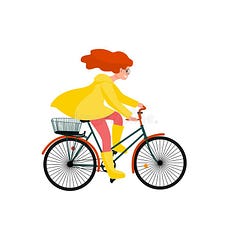Feake Hills, Crooked Waters - The debt and freedom
How free are we?There’s a lot of lip service paid to “freedom” in this country. If you ask people, particularly self-styled patriots, what the single best or most motivating quality of the US is, they’ll usually reply “freedom.” There are a lot of kinds of freedom, though, and I’m wondering what they mean. First of all, I think everybody acknowledges that freedom only exists within some limits. You’re free to drive your car on nearly whatever road you want, but you’re expected to comply with the traffic regulations. Stop on red, stay in your lane, and all that. There are small infractions of those all the time, but for the most part, you can expect other drivers to act the way you expect — to know the same rules you know, and to largely follow them. But if you’re like me, or most drivers I know, you don’t rely entirely on that trust. When your signal light turns green you probably glance around to make sure cars are really stopped before you cross the intersection. So we’re reasonably free to travel where we want to, and that’s not nothing. But it’s also not unusual; freedom to move around within a country is something you find in the majority of nations. Then there’s the one that Americans are the real champions of: shopping. You can buy a lot of different things here. That’s a freedom that’s broader in scope than in some places where things to purchase can be much harder to find. I would suggest that freedom to shop is not one of the more important freedoms, but I might be in the minority. I’ve never been a big-time consumer. I don’t have an extensive wardrobe, I have only the one car, no boat, and I don’t have any collections of things. I do try to make sure I have a functioning computer, and nowadays I have the nearly-obligatory smartphone, but that’s about it. One of the things you can buy in the US, of course, is as many guns as you want. Freedom-mentioning folks often point to this as very important. I’m not entirely sure why — there are other countries where people have plenty of guns. Switzerland and Finland, for example. But I don’t think “guns” are quite the emotional issue or aspect of “freedom” that they are here. Many people think that shooting guns is fun. I’m not one of them, although I’ve tried it, but I think it’s OK to find that an enjoyable hobby. The thing is, though, that despite the attachment of the notion of freedom to guns, we’re not as free to go gun shopping as we might be. The military has all sorts of armaments — many of them “guns” of one sort or another — that private citizens can’t purchase. I think you can go through some sort of process to end up owning an actual machine gun (legally), but I’m a little foggy about it. And beyond that, I think you’re generally out of luck. Although I think you can probably have a small cannon — at least I’ve seen a few of those around and nobody took much notice. I think they’re used as noisemakers. And hey, there’s another freedom we have: making noise. There are a few places — either dense urban areas or possibly wildlife sanctuaries of some sort — where there are rules about noise, but for the most part you can play your boom box as loudly as you want, shoot your cannon, and rev your gasoline engine to your heart’s content. If you live in some states, like New Hampshire, you can shoot off your own fireworks, too. And if you’re revving your gas (or diesel) engine, you’re partaking of another freedom we have: you can pollute the air at will. At least as a private citizen you can. It’s not that there’s an infinite amount of air (pro tip: there isn’t) but there is so much of it that we haven’t any historical basis for worrying about it. That’s slowly changing, although maybe not quickly enough. Some young men (it’s always young men) even modify their very expensive diesel-powered pickup trucks (it’s aways pickup trucks) to emit clouds of black smoke at the switch of a button. They’re not doing their truck any favors, but apparently it’s worth it in order to laugh derisively at whoever they’re “blowing coal” toward (it’s always laughing derisively, which seems to be something young men — especially in groups — enjoy). Those diesel pickup trucks, though, they’re not getting any cheaper. The young men are probably not buying brand-new ones, but if they are, they’re spending more than $40,000. Unless there’s family money involved, that means debt. And whether you’re going into debt for your favorite vehicle or for your education, it turns out that’s another freedom we have in the US; we can run up as much debt as we can convince lenders to give us. Debt is a curious sort of freedom, of course, because the more debt you have the less free you really are. If you don’t keep up the payments on your pickup truck, it will be taken away. Pretty quickly, too, as I understand it. Some other kinds of debts are the same way; some things bought with debt can be taken away. Education, though, is different; once you’ve earned a degree, it can’t be taken away because you haven’t made your monthly payments (if they ever figure out a way to do that, though, watch out!). But your behavior can be constrained. You can be constantly interrupted. You can lose control over your income. You can be forced to make choices you otherwise would not. Nearly everybody agrees that education is a good thing. In the US we have the freedom to try to get educated — but that freedom is much more constrained than in other places. There are countries in the world where, if you want to attend university, there are no associated exorbitant payments, or consequent debt. More countries than you might expect, in fact. And that’s an area of freedom I’d say the US simply does not offer. Same thing with health — nearly everybody agrees that being healthy is a good thing. In the US our freedom to stay healthy is, I would say, severely constrained — not by government edict, but by debt. You have to pay for medical care here, and if you need an operation, or a treatment, or even a particular medicine, well, if you can’t pay for it, you either do without (sacrificing your health) or you go into debt (sacrificing your freedom). You can’t talk about debt without talking about governing. Debt is a tool for directing behavior. Here’s an example: the US has an all-volunteer army, so recruiting is important. Back in 2019, General Muth, who was the chief recruiting officer at the time, announced that the Army had unexpected surpassed its recruiting goals. He thought the reason was debt: “One of the national crises right now is student loans, so $31,000 is about the average. You can get out [of the military] after four years, 100% paid for state college anywhere in the US.” Another example is the mortgage industry. Part of the (possibly mythical) “American dream” is a house, usually depicted on a comfortable suburban street with yards and happy children playing. You’re not going to get one of those without mortgage debt. And for whatever reason (there are reasons, but they’re complicated and it would take too long right now), the government has worked very hard to direct people’s behavior toward acquiring and keeping mortgage debt. When you have mortgage debt, your “freedom” is constrained. You could argue that you’ve constrained your freedom all by yourself, but that ignores a lot of things. People in the US — at least white people, anyway — are implicitly and explicitly taught for decades that “buying a house” is something they should aspire to. For those interested in the actual numbers, the system is set up so that in general, buying a house can be (or at least appear to be) a good financial move. When you’re embedded in a complex system, you have some “freedom” of choice but you can be very strongly urged in a particular direction. Of course, many people who own houses are happy with them, and will say that they’re pleased with their decisions around mortgage debt. This is a bit edgy, but to those people I would suggest this: you’re taught what makes you happy, and in a different context mortgage debt and even the house would do exactly the opposite; it would make you unhappy. Margaret Thatcher was the longest-serving British Prime Minister in the 20th century (from 1979 to 1990), and did a lot to reinforce the role of debt as an indirect (some might say “underhanded”) tool of governing. One of the things you have to do, if you’re governing by debt, is to make sure your population doesn’t see through the whole thing. This is because it’s not a very deep nor powerful idea. It’s just a larger, nationwide version of something that might be called a “scam.” And sure enough, one of Thatcher’s signature quotations was “there is no alternative.” She used that in several contexts, to mean her particular version of a “market economy,” as well as her particular versions of governing, capitalism, and economics in general. Maybe she really couldn’t conceive of alternatives. Or maybe that was a message she knew wasn’t true but had utilitarian value. Anybody trying to run a civilization based on debt, though, might do well to listen to Michael Hudson. He’s an economist, and said “debts that can’t be paid, won’t be paid.” The new student loan debt relief program is a bigger deal than it looks. It’s not just about debt. It’s about freedom. Word(s) of the dayCourtesy of the Albuquerque Writers’ Group Birch was running late for her writer's group coffee hour. She grabbed three spiral-bound notebooks, hoping one of them would be the right one and scooped up her spring jacket and hat. Dumping the notebooks into the basket on the handlebars of her blue bicycle, she slipped into her jacket, pulled her hat down far enough that she hoped it would stay on, and hopped on the bike. It was just a short ride to the coffee shop where her group met, and she was glad, as always, that the first leg was downhill. She knew she'd feel differently struggling up the hill on her way home, but she was usually late leaving and hardly ever late getting home (except in the opinions of Hammer and Claw, her two cats). She was the last to arrive at the writer's group, just as she — and everyone else — expected. The cup of green tea they'd already ordered for her was waiting in front of an empty chair. "Glad to see you made it again!" said Roan. "We've just been having a debate, and you can settle it." "OK," said Birch, breathlessly. She got settled, glancing briefly into the three notebooks to find that, thankfully, one of them was the one she had wanted to bring. "What's the issue?" "It all started when Pansy said she was feeling a touch of addubitation about whether her treatise on the role of household items made from maple in 19th century literature might be nothing but adoxography," said Roan. "And since you're tree woman, you're just the person to decide one way or the other." Birch choked on her sip of tea, saying "I'm tree woman?" "Birch. Alder." said Violet. "And what was your middle name again, Birch?" "Cedar," Birch admitted. "Settled then," said Violet. "Just a second, there, tint girl," said Birch. "If we're going to start tossing nicknames around, I think we all qualify." "Tint girl?" asked Violet. "Violet Redding? Violet AUBURN Redding? Tint girl." said Birch. "What about, um, the flower child and the bird woman of Albuquerque?" said Violet. "Pansy Rose Vine and Robin Hawke get nicknames too." Pansy and Robin giggled. "Hey," said Jane, "what about me?" "Hmmm," said Birch, "that's right. ‘Jane Jones.’ That's going to be a tough one." "She's the secret identity," giggled Robin. "Or the sidekick." "'Secret identity' will do, thank you very much," said Jane. "Just because MY parents were a bit more sensible at baby-naming time doesn't mean I can't have a cool nickname too. But back to important business everybody. Is Pansy an upcoming leading light in the Albuquerque literary scene, or a mere adoxographer?" Birch was reluctant to admit she had no idea what an adoxographer might be, so she pretended to consider the question. "Your prose is very stylish and compelling," she said to Pansy, "and when you turn your attention to poetry your imagery is so clear, too." "But am I wasting my time on something totally trivial?" moaned Pansy. "I thought it was so important when I started. Maple is so... so... agathokakological that I thought it would give such insight into the literature. But lately...I don't know..." "Agathokakological?" thought Birch. "What's gotten into this bunch today?" "That line of thinking is just aerumnous, Pansy," said Violet. "Don't go there." "This discussion makes me feel like I've got alexithymia," said Robin. "But you're more amadelphous than any of us," protested Jane. "You don't have to hold back, especially with us, Robin." Birch suddenly sat up straight. She looked hard at Pansy, then at Violet, Jane, and Robin. Then she burst into laughter. "Okay," she said, "you almost got me. Where is it?" Jane turne::d her laptop around to display the web page it she'd been looking at. "Interesting words beginning with the letter 'A'," Birch read out loud. "Figures. I'm so glad to be part of a writing group that's so apolaustic." Secret KeyYou’re not going to find those words in just any dictionary, so here’s a secret key, just in case. Agathokakological: composed of both good and evil. Alexithymia: inability to express one’s emotions in words. Apolaustic: self-indulgent. Adoxographer: an author who writes well on a trivial subject. If you liked this issue of Feake Hills, Crooked Waters, please share it!
|
Older messages
The issue that’s but a stream
Monday, August 22, 2022
You could go a-fishing in it
Emotional Issues
Monday, August 15, 2022
I'm not sure how I feel about this
Poetry Issue
Sunday, August 7, 2022
I think that I shall never see…oh never mind; you know this one
The issue with decisions
Thursday, August 4, 2022
Swimming in a sea of choice. Or choosing not to.
The issue with imagining
Sunday, July 31, 2022
Or the reissue with reimagining
You Might Also Like
eBook & Paperback • Demystifying Hospice: The Secrets to Navigating End-of-Life Care by Barbara Petersen
Monday, March 3, 2025
Author Spots • Kindle • Paperback Welcome to ContentMo's Book of the Day "Barbara
How Homer Simpson's Comical Gluttony Saved Lives
Monday, March 3, 2025
But not Ozzie Smith's. He's still lost, right?
🧙♂️ Why I Ditched Facebook and Thinkific for Circle (Business Deep Dive)
Monday, March 3, 2025
Plus Chad's $50k WIN ͏ ͏ ͏ ͏ ͏ ͏ ͏ ͏ ͏ ͏ ͏ ͏ ͏ ͏ ͏ ͏ ͏ ͏ ͏ ͏ ͏ ͏ ͏ ͏ ͏ ͏ ͏ ͏ ͏ ͏ ͏ ͏ ͏ ͏ ͏ ͏ ͏ ͏ ͏ ͏ ͏ ͏ ͏ ͏ ͏ ͏ ͏ ͏ ͏ ͏ ͏ ͏ ͏ ͏ ͏ ͏ ͏ ͏ ͏ ͏ ͏ ͏ ͏ ͏ ͏ ͏ ͏ ͏ ͏ ͏ ͏ ͏ ͏ ͏ ͏ ͏ ͏ ͏ ͏ ͏ ͏ ͏ ͏ ͏ ͏ ͏ ͏ ͏
I'd like to buy Stripe shares
Monday, March 3, 2025
Hi all, I'm interested in buying Stripe shares. If you know anyone who's interested in selling I'd love an intro. I'm open to buying direct shares or via an SPV (0/0 structure, no
What GenAI is doing to the Content Quality Bell Curve
Monday, March 3, 2025
Generative AI makes it easy to create mediocre content at scale. That means, most of the web will become mediocre content, and you need to work harder to stand out. ͏ ͏ ͏ ͏ ͏ ͏ ͏ ͏ ͏ ͏ ͏ ͏ ͏ ͏ ͏ ͏ ͏ ͏
mRNA breakthrough for cancer treatment, AI of the week, Commitment
Monday, March 3, 2025
A revolutionary mRNA breakthrough could redefine medicine by making treatments more effective, durable, and precise; AI sees major leaps with emotional speech, video generation, and smarter models; and
• Affordable #KU Kindle Unlimited eBook Promos for Writers •
Monday, March 3, 2025
Affordable KU Book Promos "I'm amazed in this day and age there are still people around who treat you so kindly and go the extra mile when you need assistance. If you have any qualms about
The stuff that matters
Sunday, March 2, 2025
Plus, how to build a content library, get clients from social media, and go viral on Substack. ͏ ͏ ͏ ͏ ͏ ͏ ͏ ͏ ͏ ͏ ͏ ͏ ͏ ͏ ͏ ͏ ͏ ͏ ͏ ͏ ͏ ͏ ͏ ͏ ͏ ͏ ͏ ͏ ͏ ͏ ͏ ͏ ͏ ͏ ͏ ͏ ͏ ͏ ͏ ͏ ͏ ͏ ͏ ͏ ͏ ͏ ͏ ͏ ͏ ͏ ͏ ͏ ͏
Food for Agile Thought #482: No Place to Hide from AI, Cagan’s Vision For Product Teams, Distrust Breeds Distrust
Sunday, March 2, 2025
Also: Product Off-Roadmap; AI for PMs; Why Rewrites Fail; GPT 4.5 ͏ ͏ ͏ ͏ ͏ ͏ ͏ ͏ ͏ ͏ ͏ ͏ ͏ ͏ ͏ ͏ ͏ ͏ ͏ ͏ ͏ ͏ ͏ ͏ ͏ ͏ ͏ ͏ ͏ ͏ ͏ ͏ ͏ ͏ ͏ ͏ ͏ ͏ ͏ ͏ ͏ ͏ ͏ ͏ ͏ ͏ ͏ ͏ ͏ ͏ ͏ ͏ ͏ ͏ ͏ ͏ ͏ ͏ ͏ ͏ ͏ ͏ ͏ ͏ ͏ ͏ ͏ ͏
Pinterest For Authors 📌 30 Days of Book Pins 📌 1 Each Day
Sunday, March 2, 2025
"ContentMo is at the top of my promotions list ... "I'm amazed in this day and age there are still people around who treat you so kindly and go the extra mile when you need assistance. If






